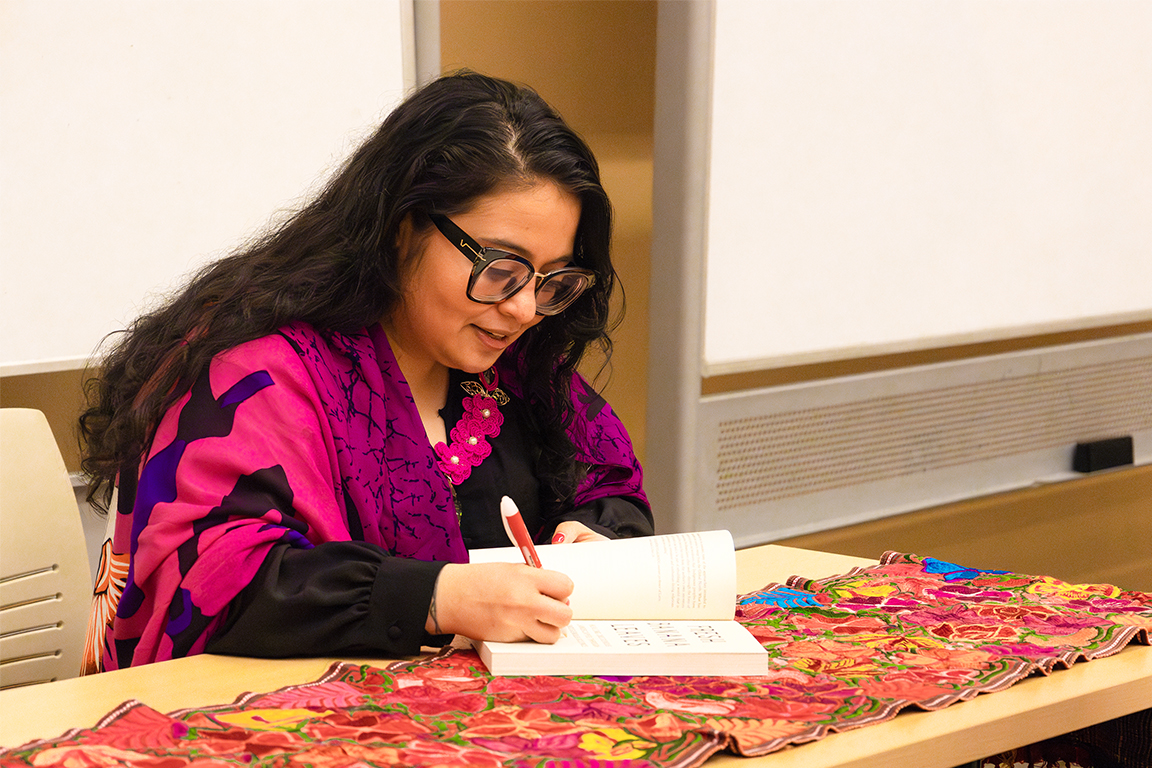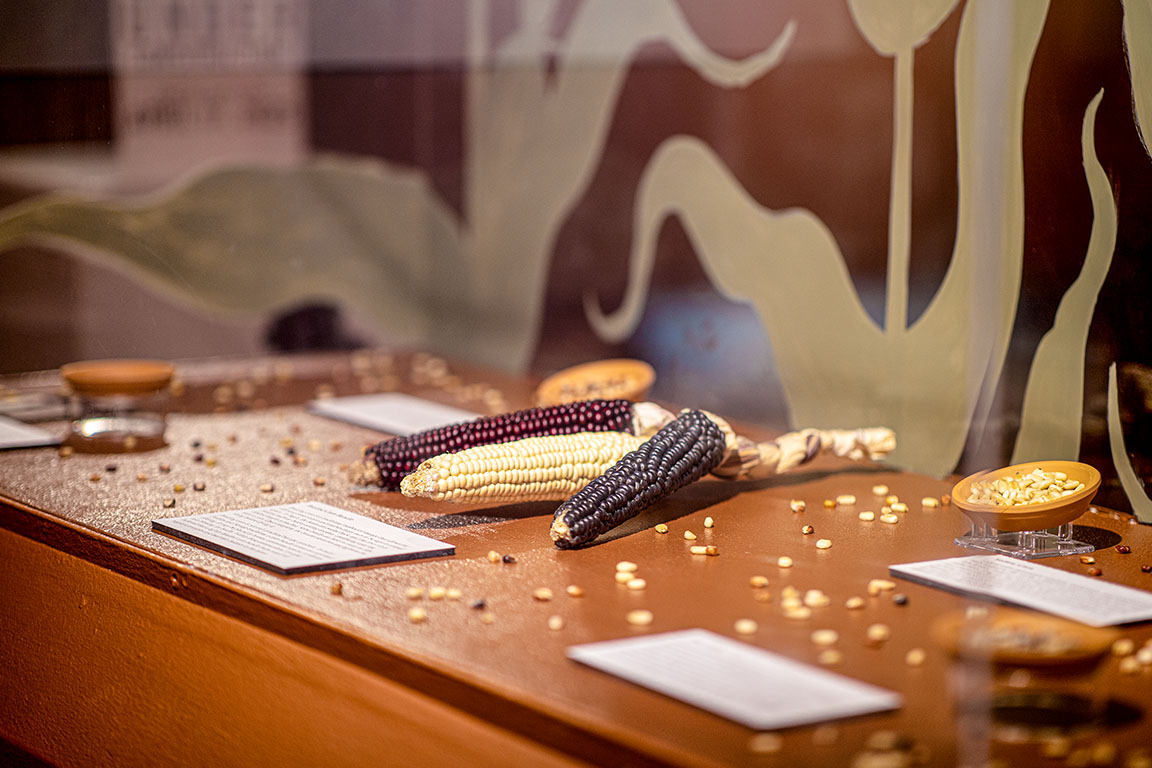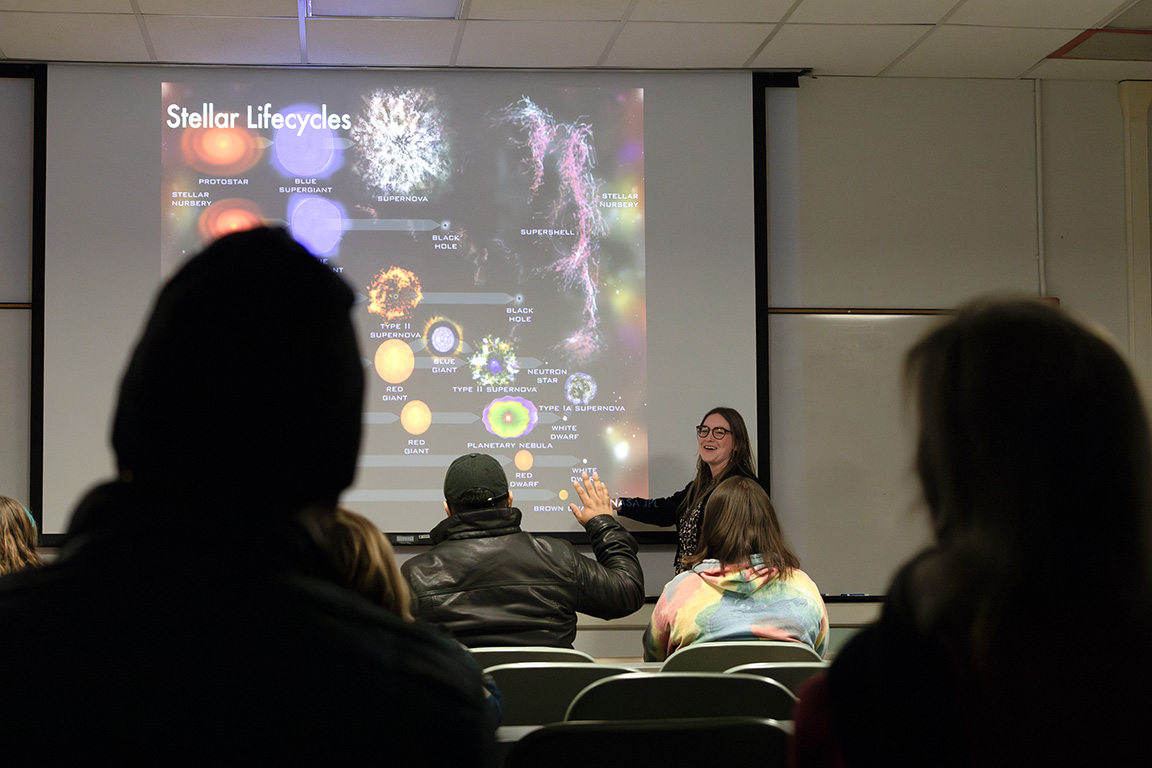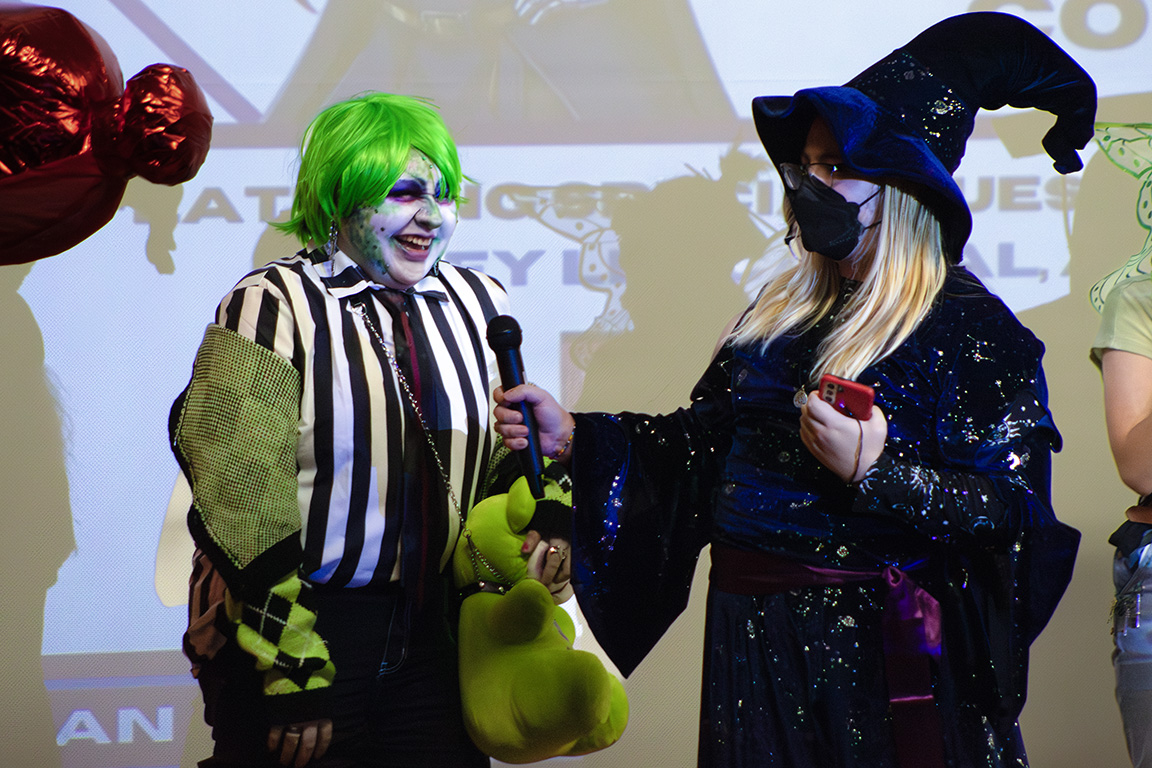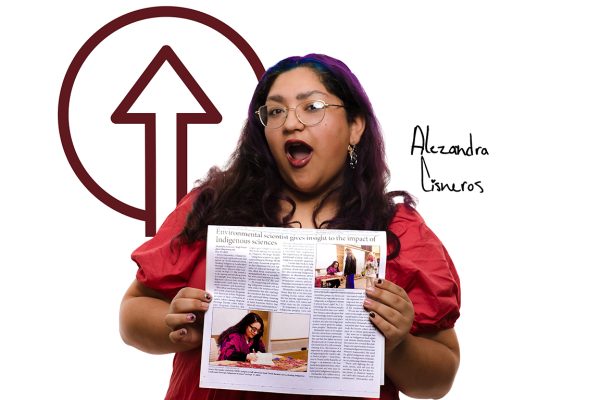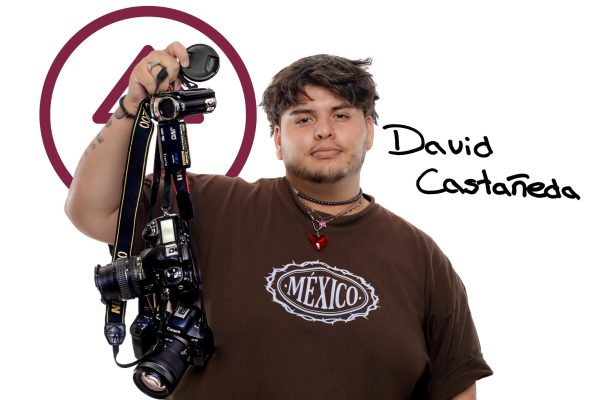Jessica Hernandez, a climate justice and land rights advocate and author of “Fresh Banana Leaves: Healing Indigenous Landscapes through Indigenous Science,” visited New Mexico State University on Sept. 17. She hosted a book-signing and speaking event to highlight how integrating Indigenous sciences into modern frameworks could make science more inclusive and beneficial.
The author was hosted by NMSU’s Latin American Programs and American Indian Programs as a part of their celebration of Latinx culture during Hispanic Heritage Month Latin American Programs Director Rio López gave insight as to why this book signing was included in Hispanic Heritage Month.
“Indigenous sciences are significant to Hispanic Heritage Month and Latin American programs, as they illuminate the rich tapestry of cultural heritage that has often been overlooked or marginalized due to xenophobic and racist histories in Latin America and the U.S,” Rio said. “… By recognizing and celebrating indigenous sciences, we not only center the wisdom of these communities but also challenge the narratives that have historically oppressed them, fostering a more inclusive understanding of Latin American history that values all voices and perspectives.”
As an Indigenous scientist and advocate, Hernandez explained how she draws from her own roots and experiences to weave a narrative that emphasizes the importance of integrating traditional wisdom with contemporary scientific practices.
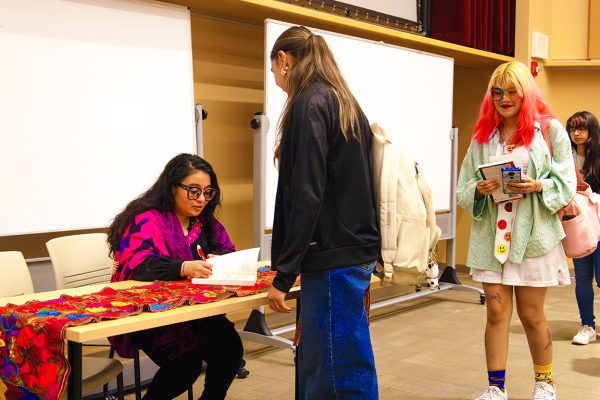
“… I want this book to help facilitate discussions of the importance; of not only uplifting, but also centering Indigenous peoples in discussions about conservation, restoration, environmental sciences, and anything that interconnects with our environments,” Hernandez said.
Hernandez clarified to the audience that this is her first year working in her career, where she has had the opportunity to work in Africa with native and tribal clans on the continent.
“It’s important to note that as indigenous peoples, we’re not monolithic groups. So, there’s a lot of differences, especially given our indigeneity or indigenous identity is placed-based right? So, I acknowledge the business peoples of this beautiful state, now called New Mexico, especially given that our knowledge systems and indigenous sciences varies from place to place, and also one indigenous person cannot speak for indigenous peoples,” Hernandez said.
Hernandez went on to explain how she comes from a community that has experienced genocide. She said that her father survived this genocide at 12 years old and discussed how it is still currently claiming lives. She believes it is important to acknowledge what is happening in the world to other Native peoples — from Palestine to Yemen to the Republic of Congo — as someone who has heard about genocide from a first-hand account and who aims to build global indigenous solidarity.
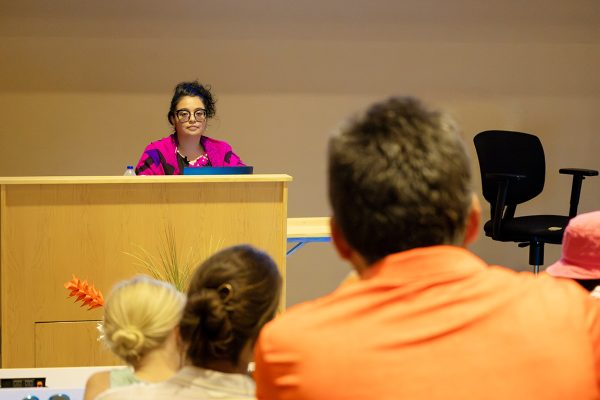
Hernandez also talked about how being an Indigenous woman has created conflict in her life, but she expressed that her desire is to empower the next generation of Indigenous youth and the growth of her community in general.
“We are not myths of the past, ruins in the jungle, or zoos. We are people and we want to be respected, not to be victims of intolerance and racism,” Hernandez said. She remarked that these words embody the lessons others should pass on to future generations.
She went on to highlight her work on Indigenous land rights and climate displacement. The discussion also covered the challenges and opportunities in incorporating Indigenous sciences into Western frameworks, the need for global Indigenous unity, and the role of Indigenous communities in addressing climate change.
“We’re still fighting for climate justice, and not just for ourselves, right, but for the entire planet, as whatever impacts our earth also impacts all of its inhabitants,” Hernandez said.


